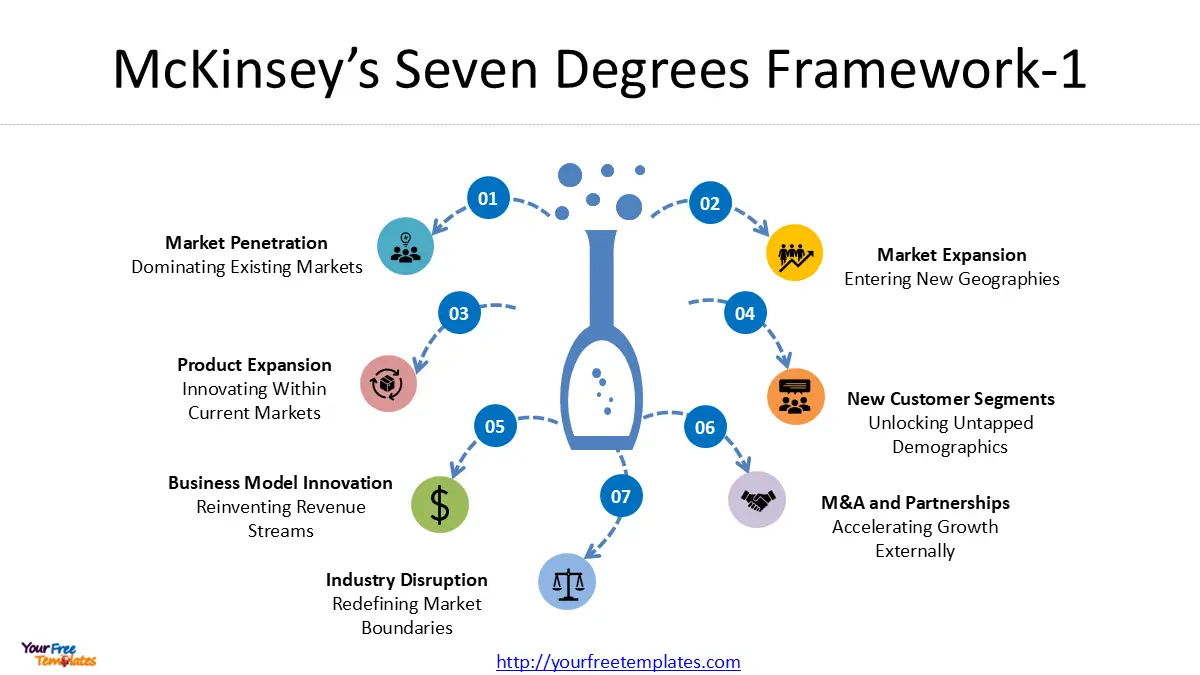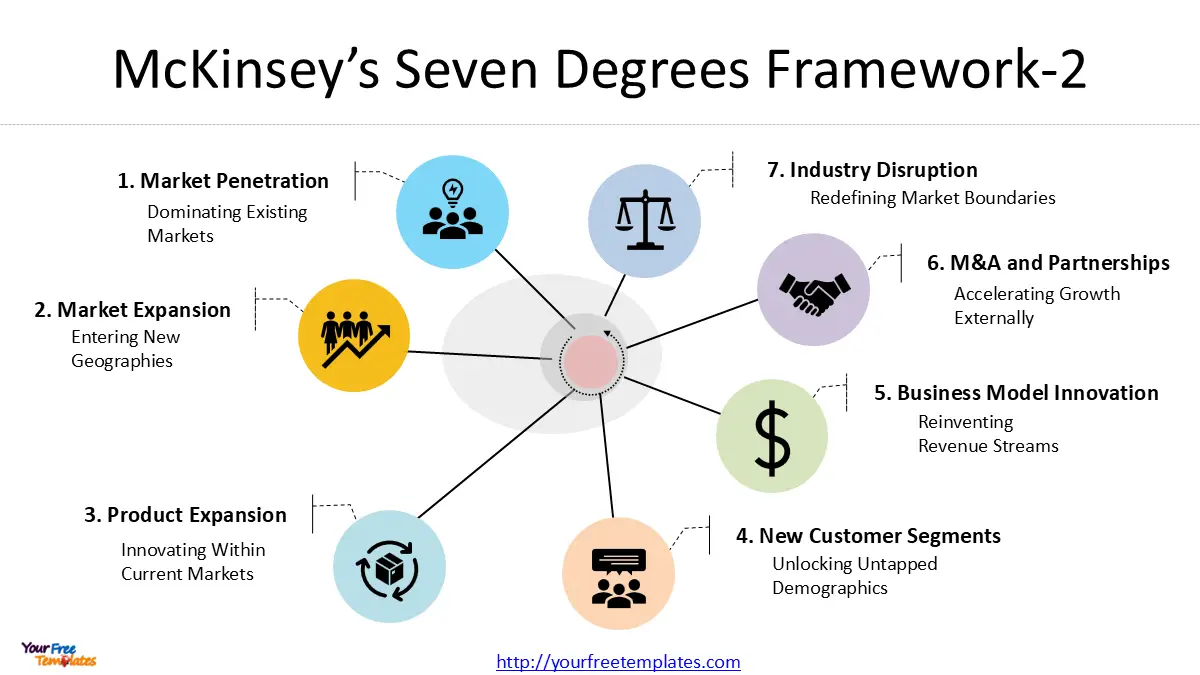McKinsey Seven Degrees Framework Introduction
In an era defined by rapid technological disruption, economic uncertainty, and shifting consumer behaviors, business leaders require robust frameworks to navigate complexity and drive sustainable growth. McKinsey’s Seven Degrees Framework for Growth, developed decades ago, has not only endured but thrived as a strategic compass for organizations worldwide.
The framework’s continued relevance stems from its structured yet flexible approach to identifying growth opportunities. Unlike rigid models that prescribe a single path, the Seven Degrees framework empowers businesses to explore multiple expansion avenues—whether through market penetration, digital transformation, or ecosystem-driven innovation.
At the end of this post, you can download our McKinsey Seven Degrees Framework PowerPoint template to fit your purpose. As the same diagram PowerPoint template series, you can also find our Lean Startup Canvas, ADKAR Model, rms market share, Energy-as-a-Service, the impact of climate change on international business strategies, Blockchain in Renewable Energy, SPACE Matrix, Bowman’s Strategy Clock, Value Chain Analysis, Climate Change, Carbon Neutral Meaning, Renewable Energy Sources, Generative AI, Circular Economy, Blue Sea Strategy, 2025 Calendar with Holidays, The 7 Habits of Highly Effective People, Six Thinking Hats, Pareto Chart, Occam’s Razor, Data Mining, marketing segment, Porter’s five forces, SWOT Analysis, GE Matrix, BCG Matrix, Artificial Intelligence, National Diamond and BlockChain PowerPoint templates.
McKinsey’s other template.
Harnessing the Power of the McKinsey 7S Framework for Optimal Organizational Efficiency
This article provides an in-depth examination of:
-
The core principles of the Seven Degrees framework
-
Why it remains indispensable in the AI and digital economy
-
Detailed case studies of modern enterprises leveraging the framework
-
A comprehensive implementation guide for 2024

Section 1: The McKinsey Seven Degrees Framework – A Modern Perspective
McKinsey Seven Degrees of Freedom Model identifies seven distinct pathways for business growth, each adaptable to contemporary challenges. Below, we explore each degree with detailed, real-world examples from 2024.
1. Market Penetration: Dominating Existing Markets
Definition: Increasing market share within current customer segments.
2024 Relevance: In saturated markets, companies use AI-driven personalization and predictive analytics to deepen engagement.
Case Study: Amazon Prime’s Data-Optimized Growth
-
Amazon leverages machine learning to analyze customer behavior, tailoring recommendations to boost Prime membership retention.
-
Features like anticipatory shipping (predicting orders before they’re placed) enhance loyalty.
-
Result: Prime members spend 3x more than non-members, securing Amazon’s dominance.
2. Market Expansion: Entering New Geographies
Definition: Growing into untapped regional markets.
2024 Relevance: Digital-first entry strategies reduce risk in volatile economies.
Case Study: TikTok’s Hyper-Localized Emerging Market Strategy
-
TikTok uses AI-powered content localization, adapting trends to cultural nuances in India, Brazil, and Southeast Asia.
-
Partnerships with local creators and brands ensure relevance.
-
Result: Over 1.5 billion active users, with 60% from emerging markets.
3. Product Expansion: Innovating Within Current Markets
Definition: Launching new products/services for existing customers.
2024 Relevance: AI accelerates R&D and product iteration.
Case Study: Microsoft’s AI Copilot Ecosystem
-
Microsoft integrated Generative AI across Office 365, GitHub, and Azure.
-
Features like real-time document drafting and code autocompletion reduce workflow friction.
-
Result: 40% productivity gains reported by enterprise users.















